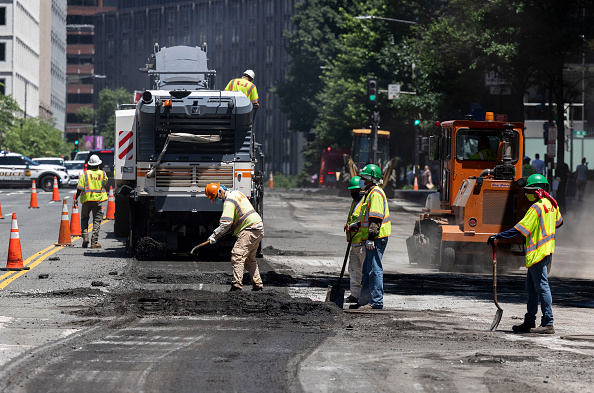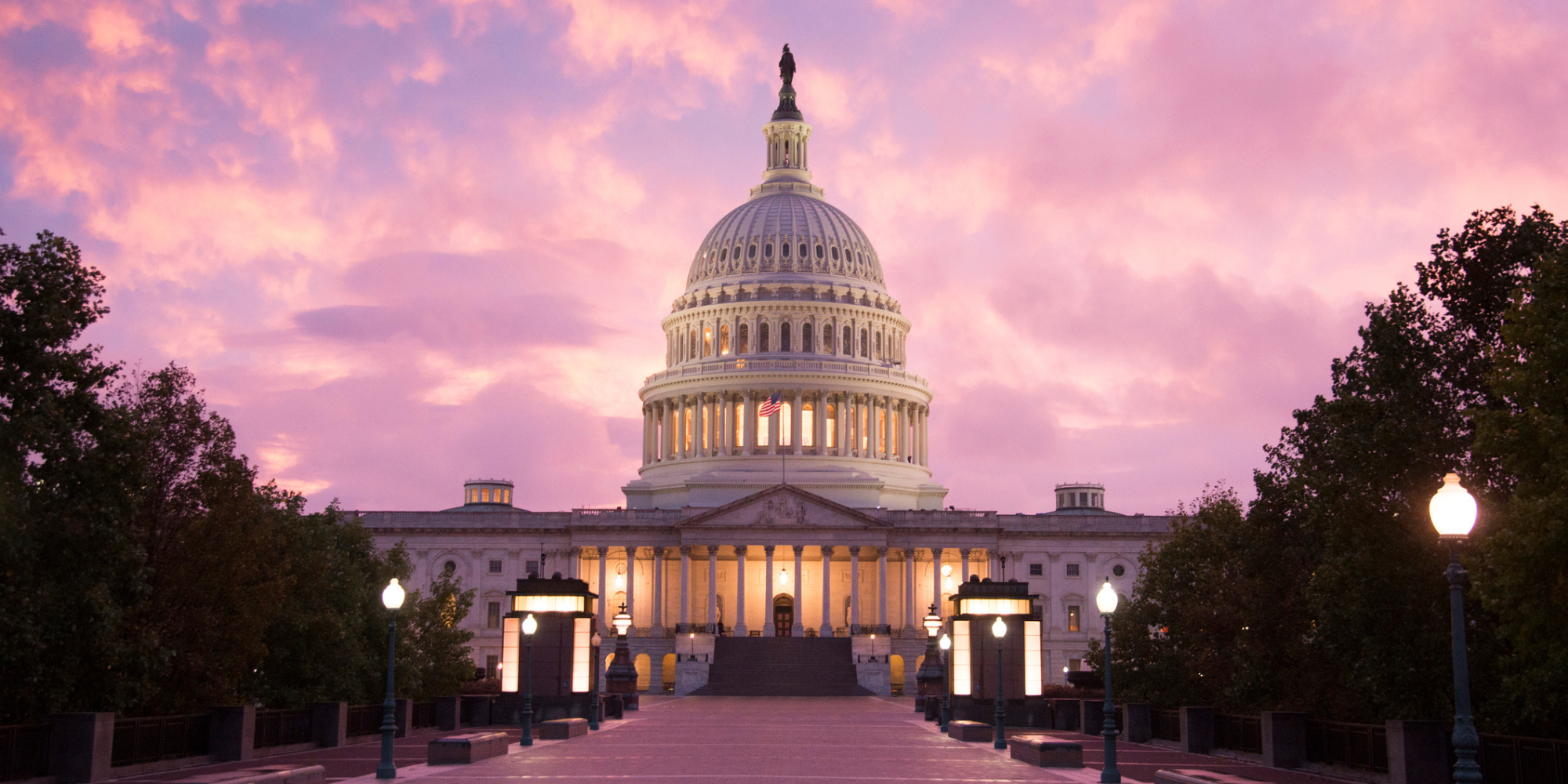This week, the House of Representatives returned to Washington to vote on a framework to move the federal budget process forward under reconciliation and committed to voting on the bipartisan Infrastructure Investment and Jobs Act by September 27th. Together, these two pieces of legislation have the potential to help local leaders build better communities for all residents, and we remain encouraged by the forward-looking investments being considered that provide for our country’s future.
Congress’ Budget Process
With the federal fiscal year looming on October 1st, the FY22 budget framework with reconciliation instructions now moves to the committees of jurisdiction for the $3.5 trillion package, which includes $1.8 trillion in new spending. The reconciliation framework contains topline revenue targets by committee with instructions that committee leadership should submit their budgetary language aligned to these targets by Wednesday, September 15.
Budget numbers by committee are as follows:
| Senate | House |
| Finance – reduce deficit by not less than $1b | Ways & Means – reduce deficit by not less than $1b |
| Agriculture – spend $135b | Agriculture – spend $89.1b |
| Banking – spend $332b | Ed. & Labor – spend $779.5b |
| Commerce – spend $83b | Energy & Commerce – spend $486.5b |
| Energy & Nat. Res. – spend $198b | Financial Services – spend $339b |
| EPW – spend $67.26b | Homeland Security – spend $500m |
| HELP – spend $726.38b | Judiciary – spend $107.5b |
| Homeland Security – spend $37b | Natural Resources – spend $25.6b |
| Indian Affairs – spend $20.5b | Oversight – spend $7.5b |
| Judiciary – spend $107.5b | Science – spend $45.51b |
| Small business – spend $25b | Small business – spend $17.5b |
| Veterans Affairs – spend $18b | Transportation – spend $60b |
| Veterans Affairs – spend $18b |
Top Priorities for Cities, Towns, and Villages
As committee leaders move forward in allocating funding across programs, now is the time to ensure that local priorities are reflected in this bill, including critical workforce training that was not included in the infrastructure package as well as essential technical assistance and grant programs to cities, towns and villages of all sizes.
To help ensure that local priorities are reflected in the budget, NLC sent a letter to Congressional leadership outlining the top 10 priorities for cities, towns, and villages:
- Ensure Equitable Access to Federal Funding: Cities of all sizes deserve an opportunity to access both formula and competitive federal programs. However, the majority of local governments are small and mid-sized municipalities that do not regularly apply for federal aid despite legitimate needs because of insufficient resources and capacities necessary for navigating and successfully securing funding through complex federal programs. NLC encourages Congress to adopt a fresh approach to aiding communities in navigating the federal grant process by authorizing set asides between one and five percent across federal grant funding streams to ensure technical assistance programs help more local governments directly access federal programs for their communities.

- Invest in a Skilled Workforce: NLC urges Congress to invest $100 billion in workforce training for residents in our communities so they can fill jobs across infrastructure sectors that will be created by the IIJA and meet shifting business demands in other sectors. The U.S. invests less in workforce development than all other developed countries, except Mexico, and over the past two decades has cut investments by 40 percent. Congress must invest broadly, at-scale in skills-based training, including on-the-job training and apprenticeships, as well as in our nation’s federal workforce development system through the Relaunching America’s Workforce Act (H.R. 2459/S. 1078) to prepare workers to return to work in a post-COVID economy and be ready for the impact of automation, technology and AI on the workforce.
- Reduce Transportation’s Carbon Footprint in Every City: Planning and investment in America’s local transportation can curb emissions significantly while making trips easier. Leveraging formulas to reach all communities, NLC supports a Community Climate Transportation Block Grant Program along with Regional Transportation Planning, especially to accelerate local decisions on energy grid and land-use zoning for adequate electric vehicle charging, carbon reduction, and new mobility strategies including advanced air mobility and shared ride programs. We call on Congress to address carbon reduction in transportation with cities through partnership programs and tools from USDOT for cities of all sizes.
- Address Climate Emissions: NLC calls on Congress for urgent action to reduce greenhouse gas emissions across a broad sector of the economy and become carbon neutral to mitigate the effects of climate change and hold warming to 1.5°C. We strongly support the bipartisan legislation to reauthorize the Energy Efficiency and Conservation Block Grant (H.R. 425) to provide flexible federal funding for state and local energy efficiency, energy conservation, and renewable energy projects. Communities also need financial and technical assistance to conduct vulnerability assessments, develop and implement long-term mitigation, adaptation and resiliency action plans, and identify innovative financing opportunities to implement these assessments and plans in order to prepare, plan for and more quickly recover from extreme weather events. The U.S. must implement a national renewable portfolio standard that increases the use of carbon-neutral energy and promotes energy efficiency, with the goal of 50 percent carbon-neutral energy by 2030 and 100 percent by 2050.
- Help Cities Provide Needed Housing: More affordable housing generates multiplying returns across many sectors - better educational outcomes, lower healthcare expenditures, higher food security, stronger economic mobility, greater racial and gender equity, fewer encounters with the criminal legal system, reduced greenhouse gas emissions, and more. Conversely, housing instability is a primary obstacle to job security and employee retention. We encourage Congress to support federal programs that help state and local governments increase housing opportunities, which include federal housing vouchers, the Public Housing Capital Fund, the National Housing Trust Fund, the Community Development Block Grant program, and the Home Investment Partnership Program. Local governments are experimenting and adopting different approaches to incentivizing construction of affordable housing, and these dollars will spur wider efforts. At the same time, we remain concerned about proposals to bind funding eligibility to limitations on local land use policies. Such complex proposals are likely to discourage participation among potential grantees weary of inadvertently violating federal rules, depriving needy households in those jurisdictions of better, more affordable housing opportunities.
- Reduce Gun Violence in Cities: Communities across the country face a troubling rise in violent crime and urgently need additional federal support to launch holistic and integrated solutions. Local leaders know that addressing violence requires tackling systemic and complex causes that destabilize communities and undermine public safety efforts. Rising violence is driven by many factors, including income disparities, poverty, lack of economic mobility, poor housing conditions, hate and discrimination, and lack of access to health services, among others. Keeping guns from flowing into our communities is just one part of the solution – we must also invest in communities facing long-standing divestments that compound social and economic insecurity while ensuring our public safety initiatives do not disproportionately target communities of color. We urge Congress to provide the additional $5 billion in federal resources for local governments to implement violence interrupter and alternative behavioral health responder programs to support a public health approach to reimagine public safety and reduce violence.
- Return Financing Tools for Cities: NLC supports the bipartisan Investing in Our Communities Act (H.R. 2283) to restore a previous exemption for local governments to advance refund bonds, which allows them to pay off existing debt that has a higher interest rate. This bill provides cities substantial savings that can be redirected for capital projects or to lower local residents’ tax bills. Additionally, NLC supports the SALT Deductibility Act (S. 85/H.R.613), a bipartisan bill that would restore the deductibility of state and local taxes and provide flexibility to communities nationwide to help fund key programs in communities without new taxes, fines, or fees which can be regressive.
- Ensure Equitable Access to Broadband: IIJA makes historic investments in the nation’s broadband infrastructure, but broadband access must be equitable to maximize these investments. We call on Congress to remove state obstacles to community broadband by including the Community Broadband Act (H.R. 1631/S. 1460). We also support funding for anchor institutions to continue the work started by the Emergency Connectivity Fund through the SUCCESS Act (S. 2447/H.R. 4663), as well as support for low-income households to obtain connected devices, such as laptops or tablets.

- Address National Child Care Crisis: Through the COVID-19 pandemic, we have come face to face with the importance of access to care for children in our nation’s communities. Not only do families need access to child care to return to the workforce and help our local economies recover, but we know that access to high-quality early learning leads to positive educational outcomes for children. As such, we call on Congress to address the issues of child care access, affordability, and strength of the child care workforce, to ensure that as our country continues to rebound from the pandemic that we are enabling and supporting parents, families and caregivers by supporting legislation such as the Child Care for Working Families Act (H.R. 2817 /S. 1360).
- Provide Legislative Solution for DACA Recipients: Cities have advocated fixing our nation’s broken immigration system for many years. For too long the badly performing system has placed numerous financial and social strains on our local communities and created obstacles to helping immigrants fully contribute economically, as well as culturally, to our nation. While enacting comprehensive immigration reform is a significant task, we hope that Congress can take immediate action on providing a permanent legislative solution for DACA recipients.
Make Your Voice Heard!
As Congress’ committees move forward with the reconciliation process and work to assign programs to the agreed upon budget levels, you can influence this process to ensure that the final budget includes programs, policies and aid important to your community. Send a letter to Congress supporting these priorities by clicking here. Advocacy from community leaders like you has helped make this package a reality – now let’s get it past the finish line!








